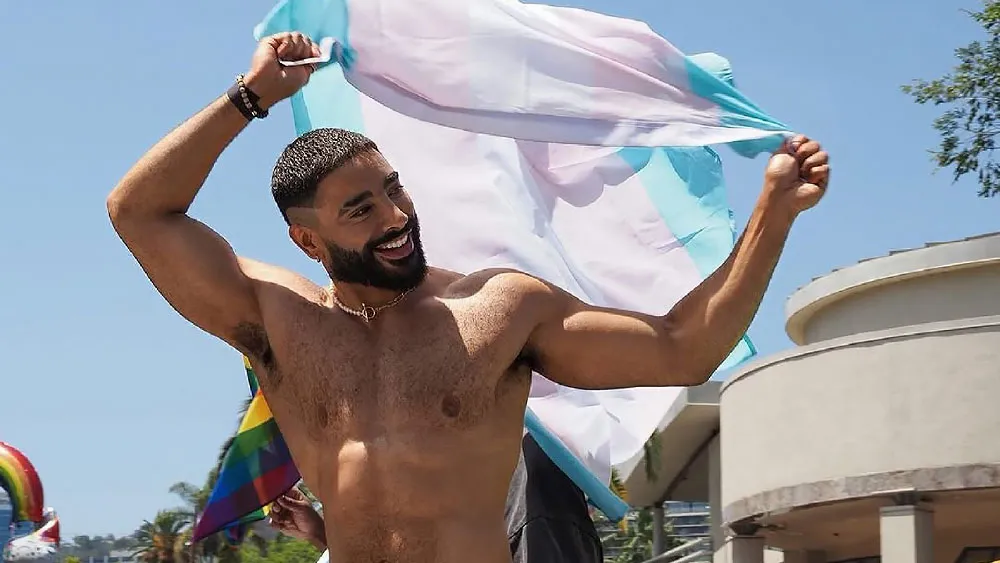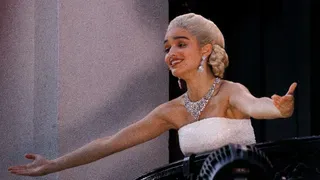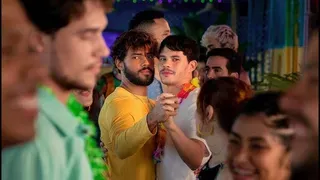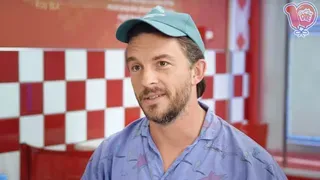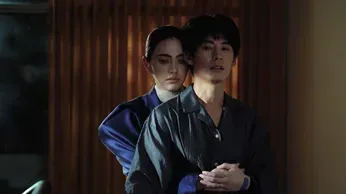
May 27
Three Queer Discoveries from Cannes 2025
C.J. Prince READ TIME: 6 MIN.
Despite taking place around a small area in the south of France for only 12 days, the Cannes Film Festival has a lot going on. Over 100 films screen across the main festival – comprising eight sections from the Official Competition to screenings of newly restored classics – and three smaller, parallel film festivals. The amount of high profile premieres means many A-list movie stars make their way to the fest, along with giant crowds of fans and plenty of media representatives to report on various aspects of the goings on. And there's also the less glamorous, behind-the-curtain industry aspect, where thousands of people on the business side of cinema buy and sell films, scripts, rights, and more. To say it's a hectic environment would be an understatement.
As a result, not every film gets its moment to rise above the chaos when it has so much to compete with. EDGE was lucky enough to preview some titles at this year's festival and found three smaller, queer films tucked in the parallel sections that represent true discoveries.
"A Useful Ghost"
A former ladyboy (Wisarut Homhuan) finds his new vacuum is acting strange when he hears it coughing one night, so he calls the manufacturer. In almost no time, a handsome repairman named Krong (Wanlop Rungkumjad) shows up to assist, only to break the news that the vacuum has been possessed by a ghost. Rather than offer a solution, Krong tells a fairytale-like story of Nat (Davika Hoorne), a woman who possessed a vacuum cleaner after her tragic death so she could still be with her husband March (Wisarut Himmarat). But March's family, who have a vendetta against ghosts ever since a vengeful spirit haunted the factory they own and got it shut down, will do anything in their power to separate this human/appliance arrangement.
Ratchapoom Boonbunchachoke's directorial debut "A Useful Ghost" is exactly as silly as it sounds, and the kind of confident and ambitious effort that's sure to make it one of the best first features of the year. Shot on film with bold colors while maintaining a deadpan tone that never bats an eye at any of the story's absurdist developments (if you ever wanted to know what a vacuum cleaner doing foreplay looks like, here's your chance), "A Useful Ghost" is consistently funny and surprising in the directions it takes. It might have been enough for Boonbunchachoke to make a sweet little romance about love after death, but several twists and turns evolve "A Useful Ghost" and its central symbol into something far more political and angry, with a plea to never forget the sins of the past to make sure a better future is possible. The film premiered in the Critics' Week festival, dedicated to first and second features, where it went on to win the main jury prize.

"Drifting Laurent"
"Drifting Laurent" opens with its title character literally descending from the skies as he lands on the small town he's ended up in, a surreal image that represents the unmoored state he finds himself in. Without a house or a job, Laurent (Baptiste Perusat) stays in a room at a ski resort during the off season, an arrangement he got thanks to his sister while he figures out his life. As he describes it to others, Laurent wanders through life with no real confidence in what he's doing and is clearly depressed. But Laurent's passivity winds up making him open to new encounters, and over time he befriends other people in the village while finding his footing.
Co-directed by Anton Balekdjian, Léo Couture, and Mattéo Eustachon, "Drifting Laurent" is a modest and charming character study that benefits from its strong characterization. Split into three sections, with each one focused on a particular person Laurent connects with, the film is at its best when it offers glimpses at townspeople he crosses paths with, all of whom are open to share and connect with Laurent. In the film's first act, and its strongest section, Laurent meets a gay photographer (Djanis Bouzyani) and the two form a connection (Laurent implies he's bisexual, although it looks more like he's open to intimacy in general). The bond is driven more by practicality given the isolated environment during the off-season, a fact that Laurent doesn't seem to be aware of until his fling is ready to head back home as winter arrives. "Drifting Laurent" handles the eventual falling out with a melancholic touch and empathy for its characters that's both relatable and a welcome breath of fresh air for these kinds of late coming-of-age dramedies.
"Drunken Noodles"
Lucio Castro's "Drunken Noodles," like "Drifting Laurent," premiered in a small parallel festival at Cannes called ACID, which is an association of filmmakers dedicated to promoting independent cinema. By its nature, the kinds of films in ACID are small in nature but interesting, as a film like "Drunken Noodles" proves. This is Castro's first feature, after the 2019 gay romance "End of the Century" and the larger scale "After This Death" (which premiered earlier this year at the Berlin Film Festival). After his second feature, Castro wanted to return to low budget indie filmmaking where he could have more creative control. The result is "Drunken Noodles," an episodic film about a young gay man named Adnan (Laith Khalifeh), an art student whose exploration of sex leads him into fantastical situations.
There's something comforting about Castro's ideas and direction due to its familiarity, as it fits nicely within the kinds of independent, gay cinema of the 1990s and 2000s: low budget, frank in its portrayal of sex, operating with a curious instinct that makes itself (and its viewers) open to whichever direction the film wants to take. The two constants throughout are Adnan and the work of artist Sal Salandra, who makes erotic gay embroidery (Salandra's art was one of the main inspirations for the film). The film's first chapter shows Adnan spending the summer in New York City, dividing his time between interning at a gallery showcasing Salandra's work and cruising at night in a park near his apartment. This links to the next section, taking place in the past, where Adnan meets the artist (Ezriel Kornel) in a chance encounter that takes a surprising turn.
Castro tends to portray sexual encounters, or at least the ones more charged with desire, with something that ruptures the film's own reality, bringing it into a magical realist realm. When one of Adnan's hookups brings several men to his apartment to re-enact an orgy in one of Salamanca's paintings, Castro shows it through a series of tableaus; a later chapter with Adnan and his boyfriend (Matthew Risch) shows them resolving a six month drought of no sex in a scenario that defies reality. Castro's ideas across his film's four episodes may not cohere in a manner that will prove satisfying in the sense of forming a bigger picture, but the tenuous connections and abandonment of realism works effectively. It's a nice shorthand when it comes to addressing the ways gay men navigate sexual intimacy, an experience that crackles with its uncertainty and risk, an unconventional form of expression that can feel like transcending into a new world.
